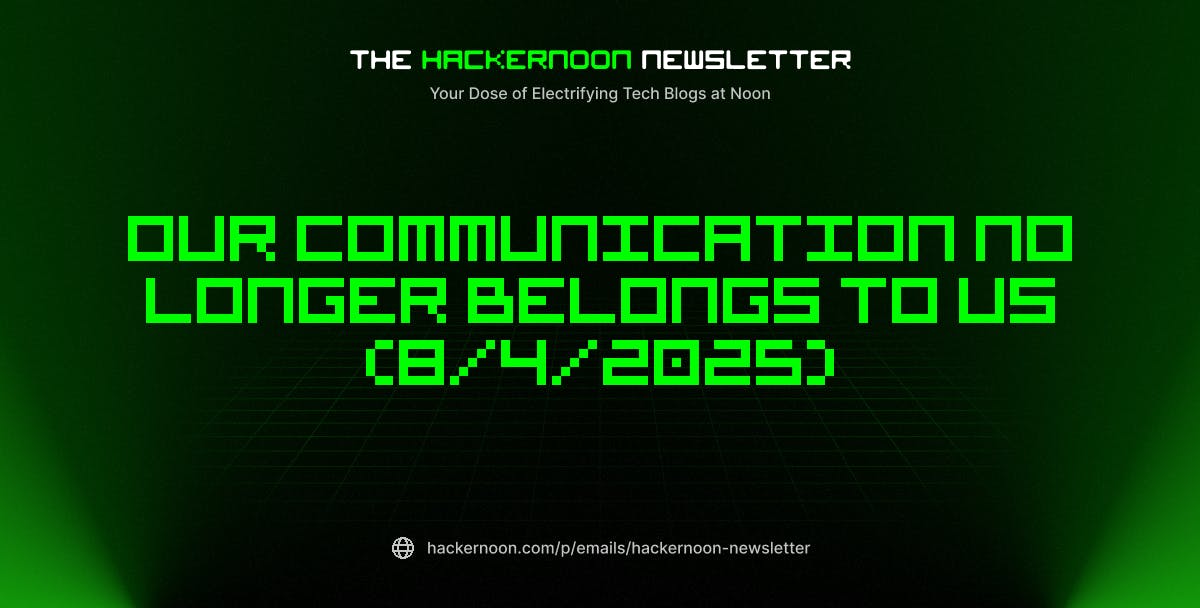I first met Seye Bandele, CEO of Nigerian HR tech upstart PaidHR, physically, at last year’s Moonshot event. Bandele was much taller in person than I imagined. There was a self-assuredness about him. Before that meeting, I had interacted with him a few times: once at the launch of the startup’s cross-border payroll products and at another during the launch of its Employee Wage Report (EWA).
Bandele is my guest for the second edition of the Day 1-1000 column, and this time we are meeting again over Zoom to reflect on the defining experiences, challenges, and breakthroughs that have shaped his startup from its inception through its first thousand days. Bandele, who’s told me on several occasions that he’s not the biggest fan of remote work, joins me from his neatly furnished office in Surulere, an office he says was designed for his comfort.
Before founding PaidHR, Bandele was a business development, strategy, and marketing professional. He’d previously held chief of marketing roles at Konga and Yudala, and ran a marketing consulting agency alongside Chikodi Ukaiwe (now CEO of Salad Africa). During his consulting days, Bandele worked with companies like Flour Mills and, notably, HR tech competitor SeamlessHR. When I ask about whether his time at SeamlessHR revealed a market gap that inspired PaidHR, Bandele says he’s not ready to speak publicly about that transition.
Instead, Bandele’s nudge to start an HR company came from his longtime friend and co-founder, Lekan Omotosho. Omotosho, bored of building software for the government, was itching for a new challenge, a problem they could solve together.
Bandele did notice problems with personnel administration. While working at Deal Day, he observed how companies struggled with a broken flow of information and communication between management and the wider team. Bandele encountered this problem at multiple organisations, and it became the inspiration for PaidHR, initially ideated as an employee engagement and feedback tool.
Day 1: Baptism of fire
In 2020, still running his consulting gig, Bandele began work on PaidHR. The vision was clear: solve HR tech problems for Nigeria’s small- and medium- scale businesses.
Together with his co-founder Omotosho, they spent about three months studying various global HR software companies—Gusto, Swingvy, and Zenitz—before deciding on their product direction. “We were no HR experts. It was just myself and my co-founder talking to as many HR people as possible and shadowing many HR tech products that were already available,” Bandele says.
The first version of PaidHR was a direct copy of Gusto, the San Francisco-based company that provides cloud-based payroll, benefits, and human resource management software for businesses in the United States. Bandele loved the business model of YC-backed Gusto, which he saw as desirable.
Omotosho, who had over 12 years of experience building enterprise software, built most of the initial product himself over 15 months. The first version was basic: a simple human resource information system and payroll tool that didn’t even automate disbursements. “You’d process payroll, download an Excel sheet, and take it to your bank to pay,” Bandele says with a laugh.
Bandele leveraged his network from previous corporate roles to get feedback on their initial product. An HR director told them their initial product was “rubbish” and needed to be rebuilt. This model, based on Gusto, targeted the small business market in Nigeria, which they estimated at 36 million businesses. But the startup’s first client would redefine everything.
Transport Services Limited (TSL), a logistics and supply chain enterprise with 2,000 employees, became PaidHR’s first customer, forcing the team to scale their product ambitions from SME-focused to enterprise-ready overnight.
The early days were a blur of demos, frantic feedback loops, and rebuilding.
“We worked with TSL for six months, just taking feedback, building and rebuilding, changing workflows, and building in a lot of flexibility into the product that has now allowed us to be able to onboard any type of organization,” Bandele recounts.
TSL’s demands pushed the team to rebuild the entire platform by June 2021. “We took down everything we had ever done and republished a brand new one,” he says.
The pressure was immense. TSL contributed 80-90% of PaidHR’s revenue in those early months. “There were moments where they were going to cancel on us,” Bandele admits. “If that happened, we’d have no business.”
Bandele leaned on his marketing chops, acting as a one-man sales force to push to acquire new clients, while Omotosho continued to build product features at breakneck speed.
By the end of 2021, PaidHR had eight customers, most acquired through referrals from TSL, and about $1,000 in monthly revenue.
Day 100-365: The first signs of traction
The first 100 days blurred into six months in survival mode and, eventually, a full year of relentless adaptation.
PaidHR’s first moment of validation came in early 2022. TSL’s annual renewal was up in the air. “We were worried: would they renew, or had they just been riding out the time while looking for alternatives?” Bandele says. When TSL delayed payment, Bandele made the tough call to suspend their service. “Immediately, all of them started calling. They paid on the same day, and we reinstituted the service.”
That moment was the turning point. “That singular event gave us the fuel. I ended all my consultancy work and decided to face PaidHR full-time,” Bandele says. He made his first hire—a customer success lead who’s still with the company—and rented a small office in Surulere.
PaidHR’s first angel check was $5,000 from Bandele’s friend. He would get another $5,000from another friend. And yet another friend from high school would connect him to the lead investor for their $500,000 pre-seed round.
By the end of 2022, PaidHR had 35 customers and $5,000 in monthly recurring revenue and had processed ₦7.24 billion in salaries.
Day 1,000: The pivots, rebrands and the pain
Three years in, PaidHR has grown to over 200 customers, serving both enterprise giants like Oando, and small businesses with just 10-15 employees. But the journey has been anything but smooth. Nigeria’s macroeconomic chaos—the naira devaluation and runaway inflation—and talent exodus forced constant reinvention.
The naira’s devaluation for instance forced a strategic pivot. “Our naira revenues were growing, but our dollar revenues were flat. Foreign investors just look at the numbers and think the company isn’t growing. We had to find a way to start making money in USD,” Bandele explains. This urgency led to the accelerated launch of PaidHR’s cross-border payroll product, booking USD revenues and helping unlock new investor conversations. By the end of 2023, the startup had processed ₦11.4 billion ($7 million), and by the end of 2024, it had processed over ₦29 billion ($18.1 million) in salaries all boosted by the cross- border feature
Bandele’s marketing acumen has been central to PaidHR’s ascent. A natural at founder-led storytelling, he maintains a lively and unmistakable presence on Twitter where his wit and candour have earned him a near-influencer status. He never misses a chance to champion PaidHR—often with humour and self-deprecation. Bandele has made the company’s narrative almost inseparable from his own.
“I think this has fundamentally shaped the way we market PaidHR,” Bandele explains. “If you speak in a way that people actually understand and relate to, they’ll naturally gravitate toward you.”
The company also went through a rebrand in 2024. It changed its name from PadeHCM (which most people struggled to pronounce at the time) to PaidHR. Bandele says the rebrand was a strategic move to reflect the company’s new specialisation and leadership in payroll for the Nigerian market. As the company grew, especially after landing larger enterprise clients, their product and market focus shifted. Originally, it aimed to be a broad human capital management (HCM) platform, but over time, the company’s strength and reputation became closely tied to payroll and related HR solutions.
Present day: The quiet breakthroughs
Today, PaidHR is profitable.
“We’ve done that consistently for a couple of months now. But that just means my revenue eclipsed my expenses. It doesn’t mean you have enough money to survive indefinitely,” Bandele clarifies. True stability, he says, will come when “my revenues are 3-4x my expenses on a monthly basis, where we can post actual profits and invest in other vehicles or reserves.”
Slowly, PaidHR has become one of Nigeria’s HR-tech upstarts such that a competitor, SeamlessHR, initiated informal discussions with the company about a possible acquisition. However, those early-stage talks did not progress to a formal offer or agreement.
“One of the things that gives me the most pride is the kind of conversations and people who are now in my circle. The governor of a state once requested a meeting with me. The MD of a major bank is on my cap table,” he said.
“When a company like Oando trusts us to run their payroll, that’s huge,” Bandele reflects.
Despite the growing validation PaidHR has received and its steady march toward sustainability, I ask Bandele whether he ever fears that, one day, he might still have to close the doors for good.
“As a founder, that fear is here and present every day. 95% of startups fail within the first five years. The data is against you. You’re working in a country where everything is stacked against you: the poverty capital of the world, disposable income is low, literacy is not great, talent is leaving in droves, the economy contracted, and the currency lost 70% of its value last year. Bro, everything is against you,” he says.
For Bandele, that tinge of uncertainty never goes away. “If something happens to PaidHR, will I be able to live with that? There’s no startup founder that won’t be able to live with it. By nature, you’ve gone into this with a lot of risk. You just have to keep pushing,” he says.
His advice to fellow founders is as sobering as it is galvanising: “Founders who make it have a healthy amount of delusion. You just believe that, with all these odds stacked against you, you have a chance.”










